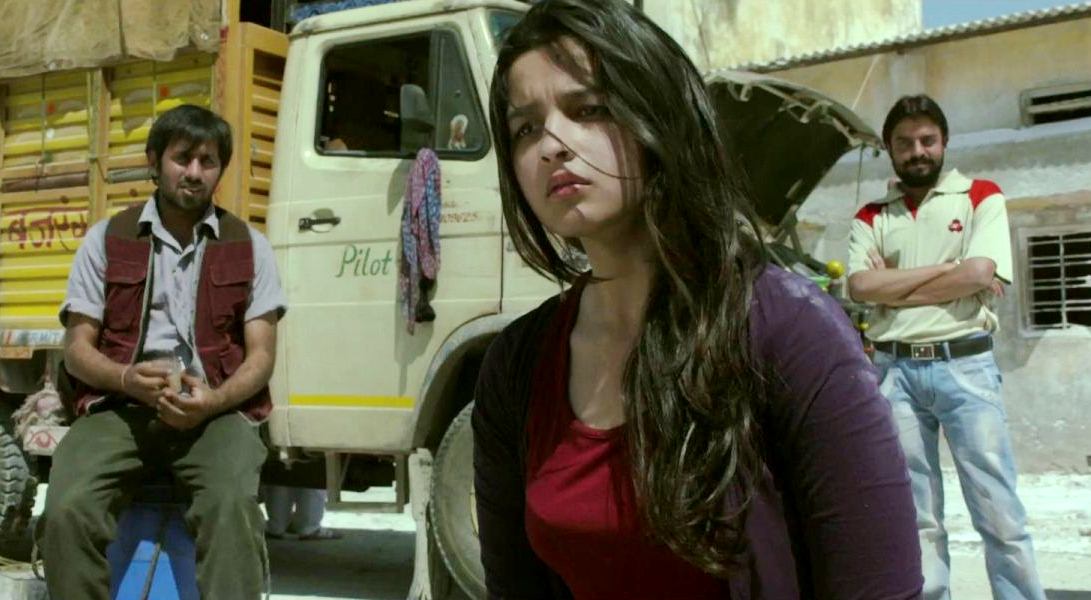HIGHWAY
 Wednesday, March 26, 2014 at 5:16PM
Wednesday, March 26, 2014 at 5:16PM Stars: Alia Bhatt, Randeep Hooda, Durgesh Kumar, Pradeep Nagar, Sarharsh Kumar Shukla and Hemanth Mahaur.
Writer/Director: Imtiaz Ali
Rating 4/5

A star-making turn from relative newcomer Alia Bhatt provides the vibrant essence of Imtiaz Ali’s bracingly atypical Bollywood road-movie, Highway.
A director with a growing reputation for combining pop-cinema tropes with deeper issue-based characterisations, Ali here skilfully works such real-world elements as arranged marriage, child abuse and class division in Indian society with identifiable genre trappings (unlikely romance; gorgeous locales; rich orchestral scoring).
The result is a thoughtful, moving, entirely accessible drama that will resonate with domestic audiences (especially the young female demographic, who will warm to a rare and truthful representation in the lead character) and play to upscale international filmgoers beyond the usual Bollywood-friendly niche markets.
Bhatt, who comes from a film industry family (her father is director Mahesh Bhatt), had only two minor roles to her name when cast as Veera, the daughter of a wealthy industrialist who is opportunistically snatched by thieves when a robbery goes bad. When her standing becomes apparent, the crime syndicate decide they don’t want that much heat and order her removed. So begins a cross-country journey in which Veera is partnered with the surly, sporadically violent Mahabir (Randeep Hooda) and petty crim sidekick Aadoo (Durgesh Kumar).
The shifting tones of the relationships are handled wonderfully by the director and his key cast. Bhatt takes the initial abuse with the wide-eyed terror of a sheltered princess but her acceptance and understanding of the men and the bond she develops with the countryside’s natural wonders and the rural population transforms her. A key scene just prior to the intermission, in which Veera exposes the shameful abuse she endured as a child at the hands of a lecherous relative, is superbly performed by the actress; additionally, it strengthens the connection with Mahabir, himself struggling with memories of boyhood hardships.
The strongest dramatic elements are played out in the film’s first half. Post interval, Highway is stretched thin by some excessive travelogue-type photography (admittedly beautiful, but often inserted at the expense of story momentum) and stylised flourishes (slow-motion; montages) that aren’t always warranted. The locations, primarily in central and northern India, include the villages of Mangar, Bikaner and Mahal; the snowy mountainous terrain of Tabo; and, the wooded hills of Aru.
So captivating is Alia Bhatt as Veera, the film’s minor shortcomings are negligible. She is not above the occasional foray into doe-eyed cuteness when it is asked of her; DOP Anil Mehta’s camera loves her face, ensuring matinee crowds will swoon as the producer’s no doubt hoped. Yet it are the darker moments in her character’s trajectory for which Bhatt will be remembered. A third act scene in which she defies her family and its chequered history on her own terms is great screen acting. It is a breakout role, the kind of which every actor hopes for, and Bhatt shows a maturity and confidence beyond her years in making Veera such a fully realised character.









